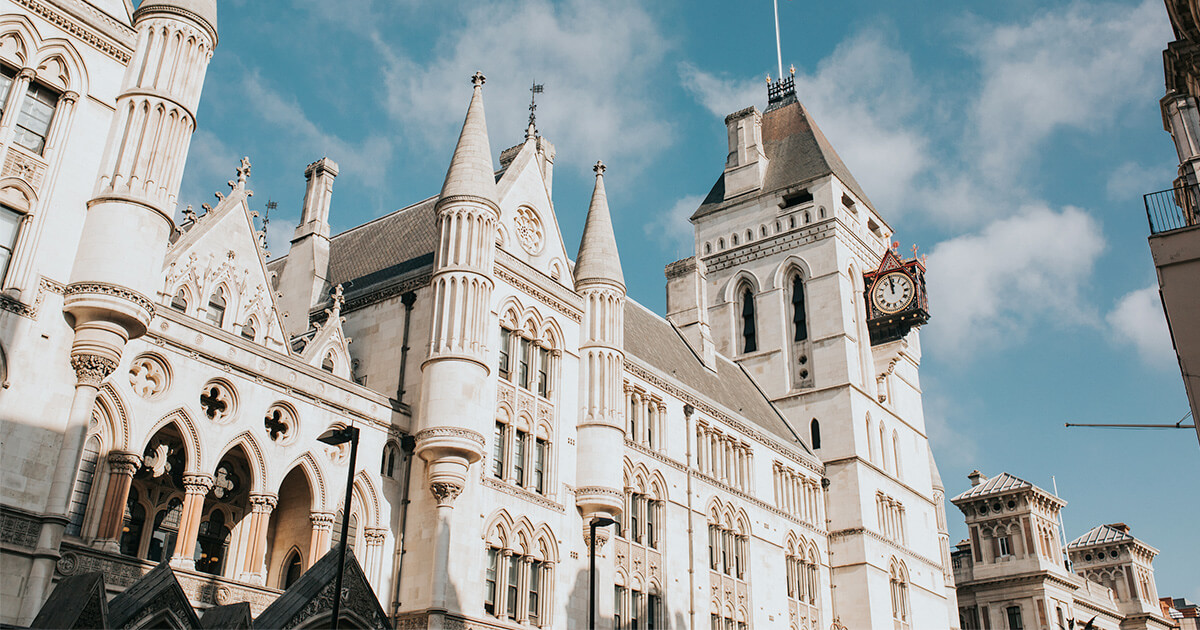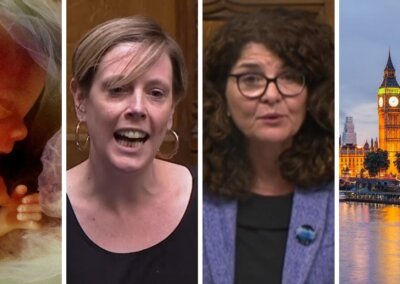The Court of Appeal has granted permission to hear a challenge against the UK Government’s decision to introduce ‘DIY’ home abortions.
The legal challenge being brought forward by the Christian Legal Centre was initially rejected by the High Court back in May.
However, the Court of Appeal has now granted permission for judicial review.
Significant problems
Since ‘DIY’ home abortions were introduced on 30 March, a number of significant problems have arisen.
In May, it was revealed UK police were investigating the death of an unborn baby after its mother took ‘DIY’ home abortion pills while 28 weeks pregnant.
In addition, abortion provider BPAS announced that it was investigating a further eight cases of women taking ‘DIY’ home abortion pills beyond the 10-week limit, raising questions over what checks are being conducted to ensure the law isn’t being broken and dangerous later-term abortions aren’t happening.
A number of women have also come forward to share the serious problems they’ve experienced after taking ‘DIY’ home abortion pills.
One woman said she went through “hell” and thought she was going to die after taking the dangerous pills.
Another woman said the pain and physical process was “horrible” and “a lot worse than expected”.
Government’s dangerous U-turn allowing ‘DIY’ home abortions
Despite assurances from the Government that there would be “no change” to abortion regulations and that in-person consultations remain “an essential safeguard” for women, the Government brought in a policy allowing ‘DIY’ home abortions shortly after lockdown began.
The very substantial change was made without any public consultation, parliamentary scrutiny or debate.
Prior to the change in regulations, abortions could only take place in hospitals or abortion clinics approved by the Secretary of State.
Under the new ‘temporary’ policy, doctors are able to prescribe mifepristone and misoprostol over the phone or video platforms such as Facetime or Skype, meaning women will be left to pass their unborn child at home without direct medical supervision.
The Government had initially stated its intention to allow ‘DIY’ abortions on 23 March, but backtracked later that day claiming the announcement had been “published in error.”
The government web page that had published the changes instead had the following message for visitors: “The information on this page has been removed because it was published in error. This was published in error. There will be no changes to abortion regulations.”
Just one day later, the Health Secretary Matt Hancock reassured the House of Commons that there would be no change to any abortion laws in response to COVID-19.
Additionally, Health Minister Lord Bethell made it very clear that there were significant safety and safeguarding issues for women and young girls with the proposal.
As the Coronavirus Bill was brought to the House of Lords on Wednesday 25 March, Lord Bethell rejected strongly, on behalf of the Government, the proposed changes to abortion law, stating:
“….we do not agree that women should be able to take both treatments for medical abortion at home. We believe that it is an essential safeguard that a woman attends a clinic, to ensure that she has an opportunity to be seen alone and to ensure that there are no issues.
“Do we really want to support an amendment that could remove the only opportunity many women have, often at a most vulnerable stage, to speak confidentially and one-to-one with a doctor about their concerns on abortion and about what the alternatives might be? The bottom line is that, if there is an abusive relationship and no legal requirement for a doctor’s involvement, it is far more likely that a vulnerable woman could be pressured into have an abortion by an abusive partner.”
He also made it clear that it would be inappropriate to make this change without parliamentary scrutiny: “It is not right to rush through this type of change in a sensitive area such as abortion without adequate parliamentary scrutiny.”
Despite these clear statements, the Government went against its own warnings and, in an incredible double U-turn, announced on 30 March it would allow ‘DIY’ home abortions.
Through their legal challenge, the Christian Legal Centre wants the dangerous legislation overturned immediately and full disclosure of the Government’s decision-making process and rationale.
Serious risk of harm and coercion
Their case is being backed by former Government Minister Ann Widdecombe and Dr Gregory Gardner.
In an expert witness statement for the High Court challenge, Dr Gregory Gardner, a longstanding GP and honorary clinical lecturer at the University of Birmingham, highlights the risk of serious injury and harm to women self-administering abortion pills.
“The introduction of home abortions as proposed (notwithstanding the presence of a Covid-19 pandemic) is a policy that is more likely than not to depart from the essential tenets of duty of care through proper clinical assessment, thereby raising the risk of serious injury and harm being done to women self-administering Mifepristone and Misoprostol at home,” Dr Gardner wrote.
In addition to citing risks of infection, haemorrhage, psychological trauma, and risk of future preterm birth, Dr Gardner explains how the Government’s decision could result in more women being coerced into unwanted abortions.
He said: “It will be difficult if not impossible to verify by phone or video whether a woman is undergoing any kind of duress to have an abortion. There does not seem to have been any consideration given to this in the proposed change in policy. There will be women who need delicate counselling to discover coercion or other forms of abuse.”
Former Government minister Ann Widdecombe has also written a statement to the high court in support of the legal challenge.
In her statement, the former Shadow Health Secretary reveals the history of the legislation which has enabled health services in England, Scotland & Wales to roll out ‘DIY’ abortions.
During a parliamentary debate in 1990, Miss Widdecombe raised concerns that an amendment to abortion legislation, allowing the Health Secretary to designate “a class of places” as suitable for abortions would inadvertently pave the way for ‘DIY’ home abortions.
However, the author of the amendment, Robert Key MP, dismissed Miss Widdecombe’s concerns and accused the then Conservative MP of speaking from “the whip issued by the pro-life group” and misleading Parliament.
The Health Secretary at the time, Kenneth Clarke, then assured MPs that the legislation was not intended to legalise home abortions and that abortions would be “administered only in closely regulated circumstances under the supervision of a registered medical practitioner”.30 years later, Ann Widdecombe’s previously dismissed concerns have become a reality.When the legal challenge was launched, Ann Widdecombe said: “Parliament was told one thing. Government is doing another and that says it all.”












